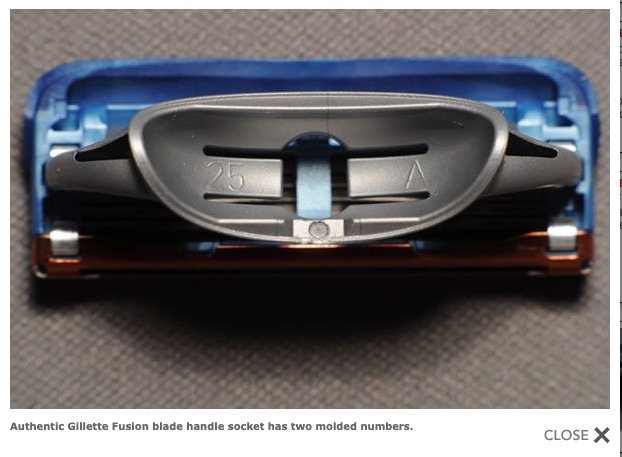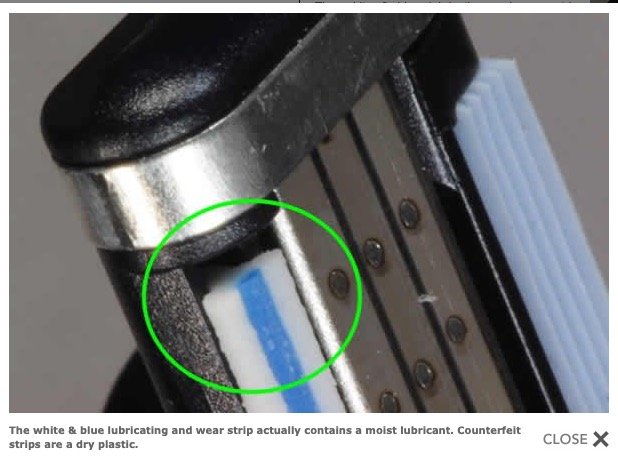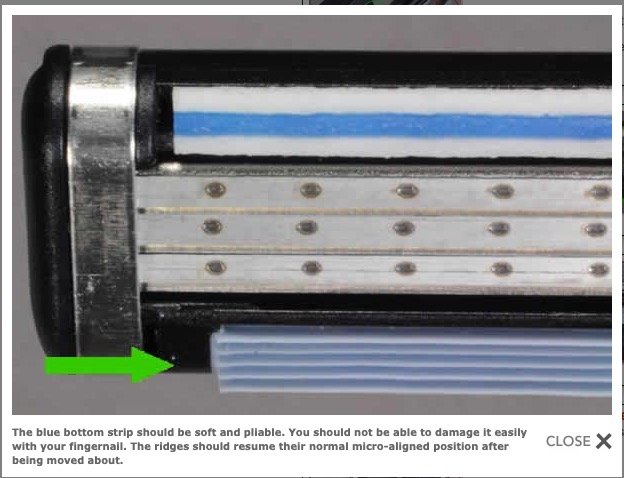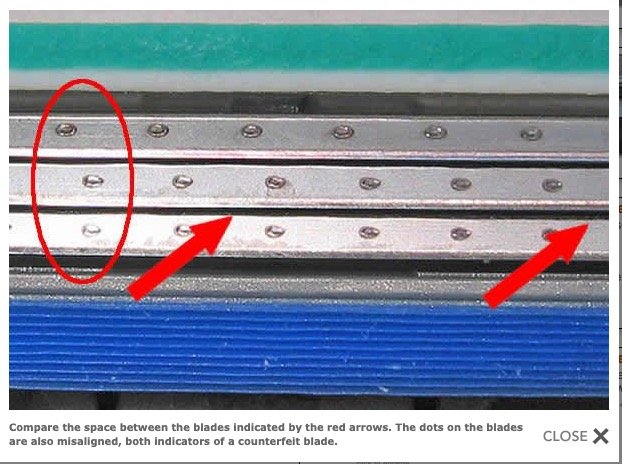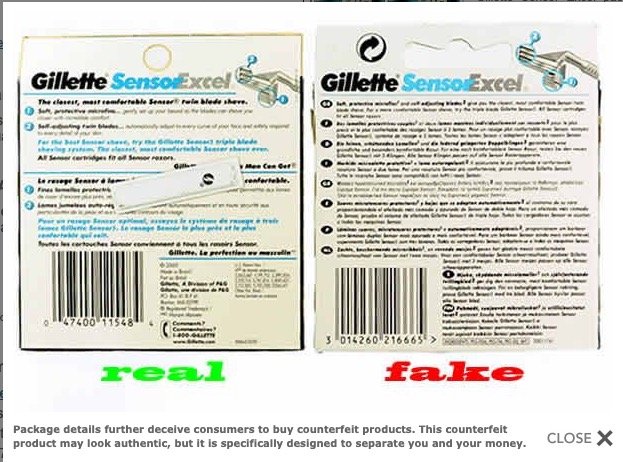-
Posts
4,145 -
Joined
-
Last visited
Content Type
Events
Forums
Downloads
Quizzes
Gallery
Blogs
Everything posted by WaveHunter
-
.thumb.jpeg.108eb73d325ad9a507d6b8594b5c0f4a.jpeg)
Customs + VAT on laptop computer purchased on Amazon (USA)
WaveHunter replied to WaveHunter's topic in General Topics
Thanks for reply Crossy. I was hoping you would chime in since I've seen other posts of yours that show you know your stuff and get right to the point. The main reason I want to buy from the USA is that Apple is currently selling their 2021 Macbook Pro M1's at a hugely discounted price...but only on their Apple Store on Amazon as far as I can tell. It's a $2,000 computer reduced to $1599. I need that specific laptop for intensive video editing, and no other laptop on the market even comes close to it in performance. -
.thumb.jpeg.108eb73d325ad9a507d6b8594b5c0f4a.jpeg)
Any one doing the OMAD diet ( One Meal a Day )
WaveHunter replied to MrScratch's topic in I'm Too Fat Forum
I don't know anything about the "literal" last moments of his life, nor do I really care. I only know what his views were about excessive carbohydrates which he openly expressed numerous times in interviews, and I know that anyone who is still directing and playing roles in movies into his 80's is in incredibly good health, and he himself attributed that primarily to nutrition, plain and simple. -
.thumb.jpeg.108eb73d325ad9a507d6b8594b5c0f4a.jpeg)
Any one doing the OMAD diet ( One Meal a Day )
WaveHunter replied to MrScratch's topic in I'm Too Fat Forum
That's not true at all. The negative effects on the human body from excessive carbs are based on hard science, not pseudoscience or unfounded myths...and I'm not talking about just "bad" carbs. Metabolically your body reacts the same way regardless of whether the carb is from a natural food like an apple, or a processed one like a candy bar. A carb is a carb...it's really as simple as that. If you actually delve into the peer-reviewed research over the last decade, it's very compelling that excessive carbs (not calories) are where the health dangers are coming from. -
I just submitted my 90 day report online today and it went so smoothly! Instantly got a confirmation of filing PDF as soon as I clicked the submit button, and then 15 minutes later, an email that said it had been approved .????. Finally after several years, they have finally got a good online system in place...Love it now!!
-
I realize you are new on this forum but your post (with with only a couple of previous posts) sounds incredibly suspicious (as in a "shill" post)! NOBODY in their right mind would buy an injectable drug off of Tik Tok LOL! To then say that it is better quality than a genuine pharma-grade product sold at pharmacies is even a more suspicious. Hopefully nobody will follow your advice!
-
I see all sorts of conflicting information on the forum about Customs Duty on Laptops coming into Thailand from the USA. Can somebody just give me a straight answer? My understanding is that laptops are waived from Customs duty (i.e.: ZERO CUSTOMS DUTY), and you only pay the 7% VAT. VERY SIMPLY, IS THIS CORRECT? Question 2: Is VAT based only on the purchase price, or does VAT also include shipping and insurance?
-
.thumb.jpeg.108eb73d325ad9a507d6b8594b5c0f4a.jpeg)
Any one doing the OMAD diet ( One Meal a Day )
WaveHunter replied to MrScratch's topic in I'm Too Fat Forum
There are always contradictory experts when it comes to newly emerging knowledge. I'm not saying I am right or wrong. I am saying that a person has a choice of sticking with old and perhaps outdated beliefs that are not really supported by science, or they can explore new ways of thinking that are strongly supported by science. I prefer to be in the latter category, that's all. -
.thumb.jpeg.108eb73d325ad9a507d6b8594b5c0f4a.jpeg)
Any one doing the OMAD diet ( One Meal a Day )
WaveHunter replied to MrScratch's topic in I'm Too Fat Forum
Personally I don't think it's as much to do with how long you live as it is to consider the quality of life you have as you age. For example, Clint Eastwood was a staunch believer in low carbohydrate protocols (which is really what OMAD is all about if you consider the science, and not just listen to the nonsensical hype. He lived to be 92 years old and right up the last moments he was an energetic and dynamic film director and actor. In fact his finest films were made when he was in his 80's! His health and vibrancy were not merely by chance or due to good genes alone. A lot of it had to do with his lifestyle principally when it came to nutrition. He famously said that he thought his health was 10% due to staying active and 90% due to nutrition, and keeping carbs extremely low was a huge part of his equation. In a number of serious interviews he made very clear that he was an ardent student of the newly emerging metabolic sciences and applied them to his lifestyle in a very focused way. Though anecdotal, I take accounts like that as being just as important as the science based studies. One can nitpick the details or veracity of things like OMAD, Keto, and the like, and you can just resign yourself to rigid and outdated myths about nutrition, or you can think out of the box and explore new ideas that are backed up by emerging science. I just prefer to be in the latter category. -
.thumb.jpeg.108eb73d325ad9a507d6b8594b5c0f4a.jpeg)
Any one doing the OMAD diet ( One Meal a Day )
WaveHunter replied to MrScratch's topic in I'm Too Fat Forum
One meal per day (as well as Keto type protocols) are quite sustainable over the long run, and very healthy I might add. I embrace both and have done so for almost 20 years now, and my quality of life is not lacking in any regard whatsoever. I am in my 50's and compete in athletic competition with people half my age and can still hold my own, and I know many others who are the same way. Conversely, I know many other people in my age bracket who are obese, prediabetic or diabetic and on insulin and VERY unhappy people. In almost every case, they are the ones that cling to outdated myths about nutrition and think that their condition is just a natural consequence of getting old....and they are dead-wrong! For most of history, people did not eat more than one meal per day, and in hunter/gatherer times went for days without even one meal, and they were far more healthy than many people today. The obesity epidemic that exists today did not exists 100 years ago. It is only in the last 50 years that it started to become a problem. It is no coincidence that this coincides almost perfectly with the advent of 24 hour supermarkets, convenience foods, and advertising that equate always being in a fed state with being healthy, happy, and full of energy. Just look at commercials for soda, candy bars, and all the other junk foods that are actually promoted as "energy foods". Look at the tv commercials back in the 1960's for Wonder Bread that "Helps build strong bodies 12 ways", or the Snicker candy bar commercials that promised to give you that mid-day boost in energy you needed, or the Coke commercial showing active and healthy young people smiling as they consumed a Coke after sports competition, or ads showing competitive athletes using sports gels, energy bars, and protein shakes... People actually buy into such nonsense today, actually believing these things are healthy for you! THEY ARE NOT HEALTHY AT ALL! Being in a continually fed state from the moment you wake up until you go to bed is about the worst health strategy you can come up with! THAT is what OMAD and things like Keto address. They are LONG-term lifestyle solutions, NOT short-term weight loss diets. From a purely metabolic point of view, the body is not designed to consume multiple meals in a single day and continually be in a fed state. The fact that many eat 3 meals a day is due to social conditioning, not metabolic need. It is not healthy to always be in a fed state. If you eat three meals a day, you can never deplete your glycogen stores, and if glycogen is always high, insulin is also high. That means that the body can not efficiently access stored body fat for fuel the way it was intended to do. THAT is why there are so many obese people in Western countries today. The whole idea behind OMAD and Keto is that the body's need for macronutrients and calories is far less than most people realize, and that alway being in a fed state has some pretty serious long-term health issues. OMAD and Keto are actually LONG-TERM health strategies, not short term weight loss solutions. Those who think of these strategies as weight-loss diets will usually not succeed with them in the long term because they will just go back to their bad nutritional habits afterwards. -
.thumb.jpeg.108eb73d325ad9a507d6b8594b5c0f4a.jpeg)
Any one doing the OMAD diet ( One Meal a Day )
WaveHunter replied to MrScratch's topic in I'm Too Fat Forum
I agree with you that foods such as pastries, pasta, and pizza are not healthy when consumed on a regular basis, but it is the carbohydrates content that is the problem, not the fat content. Of course, if saturated fats are part of the food (like Pizza), that's another story entirely. However, it is a fallacy that unsaturated fatty foods are unhealthy and make you fat. It is excessive carbohydrates that are unhealthy and make you fat. In real basic terms, It is carbohydrates, not dietary fat that elicit huge insulin response and THAT is what makes the human body store body fat instead of being able to burn it. There is so much misinformation and just plain myths about nutrition, often spread by so-called professional nutritionists and even doctors who simply have not schooled themselves in modern-day metabolic science. In the last decade huge strides have been made in understanding the metabolic basis of obesity and related conditions such as Diabetes type 2, and yet many health care professionals are still cling to outdated beliefs. -
.thumb.jpeg.108eb73d325ad9a507d6b8594b5c0f4a.jpeg)
Any one doing the OMAD diet ( One Meal a Day )
WaveHunter replied to MrScratch's topic in I'm Too Fat Forum
Not really. A carb is a carb. There's no difference between a junk food carb and a natural carb. They both are simply forms of sugar and cause dangerously high insulin levels when overindulged in. Not only that but carbohydrates are the one macronutrient that is NOT essential for health. The foods you mentioned actually contain very little fat. It is the sugar (carb) content that is dangerous. Fats and proteins are both considered "essential" macronutrients, meaning you can not live without them. Only carbohydrates are considered non-essential. The trick is to keep carbs as low as you can comfortably tolerate. Contrary to popular myth, fats will not make you fat, carbs will. -
.thumb.jpeg.108eb73d325ad9a507d6b8594b5c0f4a.jpeg)
Any one doing the OMAD diet ( One Meal a Day )
WaveHunter replied to MrScratch's topic in I'm Too Fat Forum
I'm just saying processed foods will kill you, and there are fats that are good for you, and fats that are not. I would guess that what KFC uses to fry their chicken are in the latter category.. And I would venture to say that high fructose corn syrup is no stranger to KFC. Add a supersize soda, and it's no wonder you see so many fat Thai kids who have become addicted to Western fast foods. -
.thumb.jpeg.108eb73d325ad9a507d6b8594b5c0f4a.jpeg)
Fake Gillette razor blades SCAM on most online stores Now! !@#$%
WaveHunter replied to WaveHunter's topic in General Topics
Did you buy that suit from the same thrift shop that Joe Pesci got his suit in "My Cousin Vinny"? Cousin Vinny: addressing the Judge "I bought a new suit—you seen it—now it’s covered in mud. This town doesn’t have a one hour cleaner so I had to buy a new suit, except the only store you could buy a new suit in has got the flu. You get that? The whole store got the flu. So I had to get this in a second hand store. So it’s either wear the leather jacket, which I know you hate, or this… so, I wore this ridiculous thing just for you." -
.thumb.jpeg.108eb73d325ad9a507d6b8594b5c0f4a.jpeg)
Fake Gillette razor blades SCAM on most online stores Now! !@#$%
WaveHunter replied to WaveHunter's topic in General Topics
Now Now...BE NICE! -
.thumb.jpeg.108eb73d325ad9a507d6b8594b5c0f4a.jpeg)
Fake Gillette razor blades SCAM on most online stores Now! !@#$%
WaveHunter replied to WaveHunter's topic in General Topics
After using a safety razor for the last week, I think there is a big difference! The shave is definitely closer, and after only a short learning curve, it feels much more comfortable and MUCH more precise in my hand. Cost of replacement blades on a per shave basis is also a much better deal. And the lower likelihood of getting counterfeit replacement blades is the icing on the cake. Just my opinion of course, but I will never switch back to cartridges. -
.thumb.jpeg.108eb73d325ad9a507d6b8594b5c0f4a.jpeg)
Fake Gillette razor blades SCAM on most online stores Now! !@#$%
WaveHunter replied to WaveHunter's topic in General Topics
Funny you should mention fake Logitech mouses. I think I had one! I've used Logitech for years (bought in the USA) and never had issues. Last year I upgraded to an MX-Master (bought on Lazada), and it was fine for a few months and then started acting weird, and then quickly became unusable! I got a big runaround from Logitech in regards to warranty coverage. They never admitted it was fake but they never did honor the warranty and it ended up in the wastebasket ????. In retrospect I'm sure it was fake, and I lost all respect for Logitech for not helping me with a replacement, and will never buy Logitech again. -
.thumb.jpeg.108eb73d325ad9a507d6b8594b5c0f4a.jpeg)
Fake Gillette razor blades SCAM on most online stores Now! !@#$%
WaveHunter replied to WaveHunter's topic in General Topics
LOL, those things scare me just by the look of them...hahaha! Just kidding. Seriously though, I'm happy with the Feather blades and I sort of like the idea of changing the baldes every 5 shaves or so. I mean, at 8 THB per blade, it's pretty cheap, and I just like how it shaves. Maybe I'll try other brands but for now I am certainly a lot more happy with it compared with the counterfeit Gillettes, and while I'm sure there may be counterfeits of everything online these days, the chances of a 40baht kac of Feathers being fake seems very small. -
.thumb.jpeg.108eb73d325ad9a507d6b8594b5c0f4a.jpeg)
Any one doing the OMAD diet ( One Meal a Day )
WaveHunter replied to MrScratch's topic in I'm Too Fat Forum
Well, the real bottom line is whatever makes you feel good and whatever fits your particular lifestyle I guess. You make a good point that what you eat is far more important than when you eat. I couldn't agree more with that! We live in a world of heavily processed foods and it's almost impossible to escape that no matter how health conscious you are. IMO the biggest culprit of all is high-fructose corn syrup. It is in EVERYTHING these days, and as far as I'm concerned it is poison to the human body! It all really started with the low-fat craze in the 1980's with food companies jumping on the bandwagon coming out with low fat everything! The trouble with making low-fat foods is that they taste absolutely horrible, so that's why high-fructose corn syrup found its way into everything. It simply replaced the flavor that removing fats caused , and was an incredibly cheap way for food makers to boost their profits! The result...a huge rise in obesity, and metabolic diseases like Diabetes type 2. When you look at a time graph of the prevalence of D type 2, it coincides almost perfectly with the rising popularity of low fat foods, and worse, for the first time in history, little kids became afflicted with D type 2, whereas before, it was practically unheard of. Today, both Diabetes type 2 and obesity are at epidemic levels in Western developed countries, and now it's even starting to be the same in Asian countries like here in Thailand with the proliferation of fast foods places like KFC which is a favorite of little Thai kids! As for frequency of meals, I am only saying that one-meal-a-day fits me like a well-tailored suit. That may not be true for everyone, and I can appreciate that. On the other hand, most of the people following this thread are seriously overweight, and even obese. I mean, this thread is under the "I'm too fat" forum, ya know? For the obese, one meal a day is a VERY smart idea. that should be seriously considered. Most people think that obesity is simply a matter of too many calories coming in and too few calories going out, but there is more to it than that, MUCH MORE! There is a very real metabolic reason for obesity and it has to do with insulin. This is a very simplistic description but when food is consumed, insulin levels rise as a result. If you are also in a fed state, which you pretty much asre if you eat three or more meals per day, insulin levels will always remain high. The problem with that is that as long as insulin levels are high, the body can not access stored fat to use as fuel, and over time, all the body can do is store more and more fat, while never being able to burn it. However, by only eating once a day, the body has a chance to deplete glycogen stores, thereby reducing insulin levels, and the body begins to again have the ability to access stored fat. It's loosely referred to as becoming "fat-adapted", or "keto-adapted". Since carbohydrates elicit the highest insulin response, in addition to lessening the frequency of meals, if less carbohydrates are consumed, the effect on fat burning is amplified. Again this is an extremely controversial topic with many pro and con viewpoints so I won't go any further, but as you can see in my notebook list, I have been studying this for a while now purely for my love of metabolic studies, and half of my notebooks really are on this topic. From my studies I am convinced that a) caloric restriction diets simply do not work on their own over time, and 2) altering metabolic profiles through carbohydrate restriction, and limiting the amount of time that the body is in the fed state (i.e.: fewer meals per day) are the real keys to long-term treatment of obesity, and even Diabetes. I'm not a scientist of course, but I can read and I have become pretty familiar with the underlying metabolic science (including the biochemistry involved) to really believe that obesity has a metabolic basis, and is not simply a matter of over consuming calories. In purely non-scientific terms, one only needs to ask this: If caloric restriction diets (which have been around for over a hundred years) actually worked, why is there an epidemic of obesity today? -
.thumb.jpeg.108eb73d325ad9a507d6b8594b5c0f4a.jpeg)
Any one doing the OMAD diet ( One Meal a Day )
WaveHunter replied to MrScratch's topic in I'm Too Fat Forum
First of all, I never called you stupid. I may think you are playing the "devil's advocate" since you do not acknowledge any specific points I make (i.e.: that "breakfast is the most important meal of the day" is soundly disproven bunk), or my mention of the studies of a Nobel Prize winner, which you could easily Google to find out more. These were all "clues" to help readers have things to Google to learn more without me providing what might be considered biased links to support my own beliefs. I can not spoon-feed you the studies that make me believe in this. There is no single study that I base my beliefs on. I read literally hundreds of research studies (both pro and con) to form an idea about one meal a day eating, but the real proof to me was trying it out on myself after I read everything I could get my hands on. THAT'S what proved it to me. You can Google the same way I did and find legitimate, truly science-based research studies (as opposed to third-party, biased interpretations of them) that support one-meal-a-day eating, and those that are against it. It's like being a juror in a court case. If all you do is listen to one side of the story (that only supports the view you already believe in) you will never find the truth. You have to have the passion to do the searching for yourself with an open mind, or nothing I say, nor any studies I provide will convince you one way or another. That's all I'm saying. I actually hate YouTube for that very reason. It is full of fake gurus, who's only motive is to spoon-feed lazy people with half-truths and misinformation merely to line their own pockets while disingenuously pretending to be your friend who really cares about you. Im my personal opinion, those kind of gurus are real creeps, and a total waste of one's time. -
.thumb.jpeg.108eb73d325ad9a507d6b8594b5c0f4a.jpeg)
Any one doing the OMAD diet ( One Meal a Day )
WaveHunter replied to MrScratch's topic in I'm Too Fat Forum
I can not show you a single study that will prove what I believe to be true There is no single study that is compelling enough to account for why I believe what I believe. What I believe is based on reading hundreds of studies and forming opinions of what seems to make sense and what does not. If you're passionate enough to REALLY want to find answers, you have to put forth the effort on your own. It's the only way it will be relevant to you. Like I said before, I'm not trying to convert anyway to MY views on these topics; only to put in the effort so that they can intelligently decide for themselves, and not just resign themselves in believing what some guru tells them is so. -
.thumb.jpeg.108eb73d325ad9a507d6b8594b5c0f4a.jpeg)
Any one doing the OMAD diet ( One Meal a Day )
WaveHunter replied to MrScratch's topic in I'm Too Fat Forum
This guy is a holistic doctor running a "lifestyle changes" clinic in SIngapore. He may be an MD, but clinics like this are suspicious to say the least. He is certainly not a well vetted science based researcher, that's for sure! When you look at his website, it's obvious that his YouTube videos are just a way to funnel prospective clients to his clinic! He is EXACTLY the kind of YouTube guru I was describing so you could not have made my point better if you tried! Nonetheless, I watched his video and it is all full of half-truths and downright misinformation! I have been eating only one meal a day for almost twenty years now and suffer none of these effects he mentions. What's more, I lead a VERY active lifestyle, running 5k five days a week, swimming over a mile per day, and riding mountain bikes on the weekend...and I am now in my 50's! I am not unique either. I know many other athletes who embrace the idea of eating only once a day, and for the same reason as I do...because it makes them better athletes, it is how your body is supposed to work metabolically, and it just feels good when you wake up in the morning fully energized and ready to greet a new day! Just to go through his issues with OMAD: 1) I have no problem at all consuming enough calories or macronutrients (protein) 2) No issues with micronutrients, simply supplementing where necessary 3) His notion that breakfast is the most important meal of the day is pure bunk! Research over the last few years has soundly disproven any truth to this notion! Perhaps his half-truths might apply to dumb people who try to follow a rigid OMAD protocal promoted by YouTube gurus with stupid names my the 16/8 method or other equally rediculous names designed to get them a following on YouTube, but someone who really has studied nutrtion from a science-based perspective does not follow such protocols AT ALL! I eat one meal a day. It is as simple as that. No fancy sounding names, no specific timing of the meal. Fact is, I start my one meal of the day when my work is done and I can relax. I eat a little, take a break, and eat again a little later. My meal may span several hours with my goal just being to enjoy eating, that's all! I eat until I no longer feel like eating, and that's that. Pretty simple, huh? I get ALL of the macro and micronutrients I need for the next 24 hours, and when glycogen levels start to run low the following day, my body easily shifts over to a fat burning metabolism which allows me to engage in my running and swimming without any problem at all. Of course, there are those occasional days when I just feel like being naughty, and go to McDonalds and then eat a quart of ice cream LOL! No rules, no rigid protocols...just satisfying my body. It talks to you, you know? Sometimes it tells you to do stuff like that, and if you're truly smart, you listen to what your body tells you! It knows far better than you what it really needs. As strange as it may sound (if you do not really understand how your body works in metabolic terms) the lack of eating throughout the day actually makes my body MORE efficient at using stored body fat as an efficient fuel source when glycogen levels become low. ow this happens is to complex to describe here, but is has all been thoroughly studied in peer-reviewed studies, including one researcher who was awarded the Nobel Prize in Medicine in 2016, Dr. Yoshinori Ohsumi. You can listen to these fake gurus to get all of your information if you like, but I prefer to educate myself by sourcing GENUINE, well vetted, and purely 1st hand, science-based information in order to decide what is a good plan of action for ME. Am I guaranteed it is correct? Of course not! Is it worth trying anyway? I would say YES! I spend months meticulously studying a metabolic science topic before implementing it on myself, not just watching a few arbitrary YouTube videos. I use Google to comb through past and current research, not just from sources that support my beliefs but sources that contradict them as well. Is it as quick and easy as listening to some fake guru on YouTube? No! Is it worth the effort? YES, ABSOLUTELY! On the topic of nutrition alone, I now have well over 40 notebooks filled with notes! Don't believe me? Take a look! All of these notes are from WELL VETTED, science based sources, and that gives me the confidence to basically bio-hack these ideas to see FOR REAL whether they work for me or they do not, and one meal a day works for me, and it works for a lot of others as well, especially athletes looking for ways to optimize their performance. -
.thumb.jpeg.108eb73d325ad9a507d6b8594b5c0f4a.jpeg)
Any one doing the OMAD diet ( One Meal a Day )
WaveHunter replied to MrScratch's topic in I'm Too Fat Forum
LOL...now you made my point for me! If you get your information from sources like Youtube and TedTalks, all you are getting is someone else's opinion, often biased to fit their narrative, and often incentivized for self-serving purposes....A COMPLETE WASTE OF TIME! DO YOUR HOMEWORK and Google for GENUINE 1st-hand research topics from truly science-based sources! Google is your friend...DON'T BE LAZY...USE IT! -
.thumb.jpeg.108eb73d325ad9a507d6b8594b5c0f4a.jpeg)
Any one doing the OMAD diet ( One Meal a Day )
WaveHunter replied to MrScratch's topic in I'm Too Fat Forum
Love your selfie ????. I'm a big fan of Kramer, and remember that episode where that portrait was made! That was the question I asked myself when my blood panels came back with that news. At the time I lived in Florida and was an avid surfer, spending 3 hours a day on weekdays and all day on weekends on the water under a very intense Central Florida sun. It turns out that in some people the human body does not produce enough Vitamin D from sunlight as many believe. I was never deficient to the point where I had any noticeable symptoms. I felt fine, but my doctor felt it wise to supplement which I did (and still do) and on the next blood panels 3 months later, all was good. -
.thumb.jpeg.108eb73d325ad9a507d6b8594b5c0f4a.jpeg)
Any one doing the OMAD diet ( One Meal a Day )
WaveHunter replied to MrScratch's topic in I'm Too Fat Forum
What I said does NOT prove your point at all! You obviously do not do not read my posts carefully. I am talking about the difference between pseudoscience and genuine science! If you are going to criticize my remarks about metabolic science topics, perhaps you should be more well-read on the current science-based research, and I don't mean by following a few YouTube health gurus and watching TedTalks where so-called "experts cherry pick only facts and half-truths from legitimate research that support their own (often biased) narratives. The current research in the metabolic sciences is very complex and constantly in a state of flux. Yet many so called online experts like to simplify it all and paint a simplified picture that is often heavily biased to fit their own narrative. When you only rely on them, you are doomed to making very poor lifestyle choices for yourself. I do not try to "convince everybody" to adopt my own strategies on these topics at all! That criticism insults me greatly because that is the single thing that infuriates me about all of the YouTube gurus that do that simply for self-serving reasons! I try to convince people to NOT accept third-party interpretations of scientific research by guru-types or so-called experts, and instead spend time googling the research FOR THEMSELVES, not only research that supports their beliefs, but research that contradicts it as well, and not just doing that for a few sources, but spend time exploring MANY DIFFERENCE sources, so that you get an in-depth understanding of the topic. With complex topics such as this, there very rarely are 100% science based facts to go by so you have to look at many different sources before you can form YOUR OWN opinion. THAT IS WHAT I TRY TO CONVINCE PEOPLE TO DO...TO THINK FOR THEMSELVES, and not just accept a so-called expert's opinions that sound like they have the definitive answer...because there often is no definitive answer! It's hard work and you have to love the topics you explore or you'll never have the patience to do it...BUT that is the only way you can decide for yourself what is right and what is not. It's a lot of work and most people are unwilling to take that approach since it's simpler to just latch on to a single expert that makes you feel good and paints a simplistic picture of a complex topic for which there is no right answer. There are plenty of YouTube Gurus who make a living doing that, and if you rely on that approach you are just doomed to making very poor lifestyle choices. NOTHING GOOD EVER COMES EASY! DO YOUR HOMEWORK!!! FYI, I take 10,000 iu as protection against Covid infection. I selected that dosage based on A LOT of research from well vetted, science based sources. I do not need that amount for good blood panels. It is just "insurance" against potential Covid issues. BTW, That amount is BY NO MEANS harmful, and Vitamin-D is dirty cheap. -
.thumb.jpeg.108eb73d325ad9a507d6b8594b5c0f4a.jpeg)
Fake Gillette razor blades SCAM on most online stores Now! !@#$%
WaveHunter replied to WaveHunter's topic in General Topics
That was my experience when I used my last US-bought Mach3 blade and then replaced it with the Lazada one. I was getting around twenty comfortable shaves with the US version. I actually counted the number of shaves because I was curious to know how many shaves I got with a special shaving cream I use called Cremo, and it was consistently 18-24 shaves. I made hatch marks on the shower tile wall with a Sharpie ???? When I had used my last US blade and then put in the the brand new Lazada replacement it was so dull by comparison that I could not even finish my shave! I thought maybe the blade was just a reject, and ended up opening up a fresh package of blades and...same thing! I went through all five cellophane packs and they were ALL equally bad! Even though all the packaging made it look like a genuine Gillette product it clearly was not, and then I read an interesting article about how to tell the difference between real and fake Gillette blades, and without question they were counterfeit! HOW TO SPOT FAKE GILLETTE BLADES: The internet is littered with articles describing how to spot fake Gillette blades. That's testament to the size of the problem! Just Google your specific blade and you'll find detailed tells. Here's just a few:









